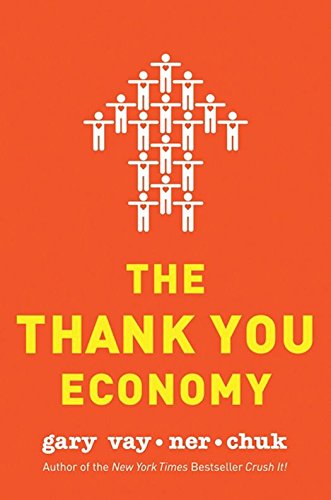Quiet: The Power of Introverts in a World That Can’t Stop Talking
RATING


“Quiet” is a passionate and well-researched plea for the understanding and appreciation of introversion. Susan Cain, a former Wall Street attorney and self-identified introvert, delves deep into the biases of modern Western society towards extroversion.
The book begins by defining what it means to be introverted, dispelling common misconceptions. Cain explores the value of solitude, prioritizing depth over breadth, and the importance of reflection over quick decision-making. Drawing from scientific studies, historical events, and personal anecdotes, she highlights the indispensable roles introverts have played across various fields, from technology and art to leadership and activism.
Cain introduces the concept of the “Extrovert Ideal”—the idea that being outgoing, bold, and sociable is superior—and the impact it has on workplaces, schools, and social settings. This ideal often puts introverts at a disadvantage, forcing them to work against their innate tendencies, or risk facing being perceived as lacking.
Furthermore, the author provides insights into the biological and societal factors that shape our introverted or extroverted personalities. She delves into the evolutionary advantages of both types and the cultures that value one over the other. Cain insists that the current focus on extroversion is an inherently Western phenomenon, and damages people and organizations that are working within other cultures, or (as it is increasingly common) are becoming more and more multicultural, international and global.
A particularly resonating section is Cain’s discussion of introverts in the workplace. She demonstrates how open-plan offices, group brainstorming sessions, and the emphasis on teamwork might not always yield the best results. Instead, allowing introverts their space and time to think deeply can lead to more innovative solutions.
Susan Cain’s “Quiet” is a refreshing take on the highly popular introvert-extrovert dynamic. Her thorough research, combined with compelling storytelling, captivates readers and champions the introverted cause without diminishing the value of extroverts — to the benefit of all.
The book is incredibly relatable for introverts who have often felt out of place in a world that celebrates extroversion. It provides validation, understanding, and practical advice for thriving in environments that might not always be conducive to their nature, allowing people to better understand and develop themselves and their abilities.
Finally, Cain’s emphasis on the power of quiet reflection and deep work presents a compelling argument for rethinking some of our professional and educational practices to better cater to and leverage the strengths of a diverse range of personalities, and thus achieve better results in any line of work.
While “Quiet” is a groundbreaking exploration of introversion, it sometimes leans heavily on dichotomies, which may oversimplify the vast spectrum of human personalities. The extrovert-introvert dynamic, while fundamental to the book’s premise, occasionally risks painting a black-and-white picture of a subject that, in reality, would be better depicted in many shades of grey.
Furthermore, while the book’s research base is very solid, we would like to see a deeper exploration of the topic in business environments, as well as some reliable frameworks for organizational evolution and corporate culture devolvement to include the findings of the book. As it stands, the readers might feel a little lost on what to do with their newfound knowledge.
At least one-third of the people we know are introverts. They are the ones who prefer listening to speaking; who innovate and create but dislike self-promotion; who favor working on their own over working in teams. It is to introverts—Rosa Parks, Chopin, Dr. Seuss, Steve Wozniak—that we owe many of the great contributions to society.
In Quiet, Susan Cain argues that we dramatically undervalue introverts and shows how much we lose in doing so. She charts the rise of the Extrovert Ideal throughout the twentieth century and explores how deeply it has come to permeate our culture. She also introduces us to successful introverts—from a witty, high-octane public speaker who recharges in solitude after his talks, to a record-breaking salesman who quietly taps into the power of questions. Passionately argued, impeccably researched, and filled with indelible stories of real people, Quiet has the power to permanently change how we see introverts and, equally important, how they see themselves.
“Quiet” is a valuable read for educators, leaders, managers, and anyone looking to better understand the dynamics of personality in personal and professional settings. Introverts will find solace and empowerment in its pages, while extroverts will gain insights into the minds of their quieter counterparts. Those in leadership roles would especially profit from the book’s guidance on harnessing the strengths of both personality types in team settings.
For a more in-depth exploration of the importance of empathy in workplace environments, consider reading “Radical Candor” (Senteo Review) by Kim M. Scott. In this book, Scott identifies the four most common types of behavior and advocates for a combination of empathy and straightforwardness.

“Quiet” delves deeply into the psychological and societal facets of personality types, primarily focusing on the understanding and appreciation of introverts in a predominantly extroverted society. Cain’s research and insights make it a valuable resource for those seeking personal growth, improved interpersonal relationships, and the fostering of diverse and inclusive environments.
See content on this topic

Understand the value of a customer-oriented analytics package and how behavioral scenarios can be used to improve profitability through influencing behavior and usage.
To understand the principles of game dynamics and learn how to effectively use the elements of gamification in business: to involve customers, employees and contractors in the process.
Understanding branding and communications from the standpoint of emotional engagement and building relevant and meaningful dialogue with customers.
This course covers a complete view of customer touch points (both physical and virtual) and a unique model for standardizing and managing customer contact models across channels including approaches for customer feedback, quality management, and migration.
Experiential Branding & Communications – Improving Brand Integration Through Emotional Engagement.
This course covers a complete view of customer touch points (both physical and virtual) and a unique model for standardizing and managing customer contact models across channels.
Sales training for front line along with basic development and coaching principles for line management.
Understanding how leaders must evolve with relation to the evolution of business models, new management models, and the significant changes to the workforce with Digital Natives now making up more than 50% of the workforce globally.
Understand the theory and mechanics of developing and managing a customer-centric and experience-driven corporate culture that is consistent and stable and includes elements of Employee Experience (EX) and Employee Relationship Management (ERM).
Understanding the evolution of leadership styles, management models, organizational structures, performance measurement and guiding change in the evolution of business models from product-centric to customer-centric and even relationship-centric.
Understand how to manage both internal and external digital transformation while considering the landscape for digital business models and the effect on traditional business models. Understanding organizational readiness for transformation and the role of corporate culture in managing transformations.
The changes in consumer behavior, employee behavior, and the evolution of business models in the digital age cause significant difficulties and imperatives for leaders who must develop new skills and evolve their leadership styles to be effective in this fast changing, challenging, and competitive environment.




 Copy Link
Copy Link
 E-mail
E-mail
 LinkedIn
LinkedIn
 Facebook
Facebook
 Telegram
Telegram
 WhatsApp
WhatsApp
















 Go Back
Go Back
Leave a Reply
You must be logged in to post a comment.